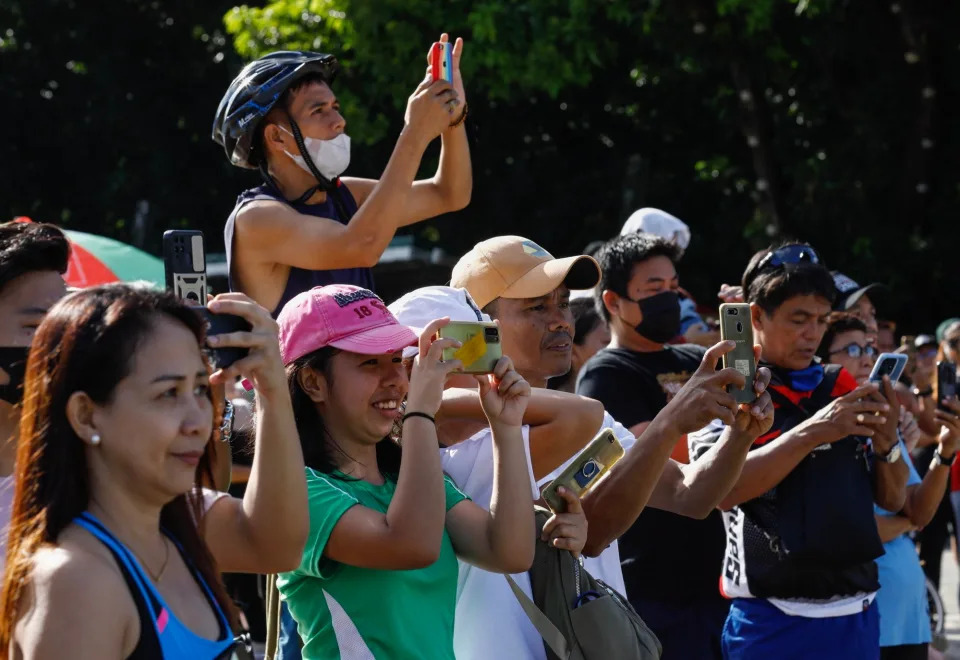South China Morning Post
Mon, August 21, 2023
An overwhelming majority of young consumers in Southeast Asia are more attracted to mid-range or budget phones than higher-end models from established brands like Samsung Electronics and Apple, according to a new survey.
The survey, conducted by British market research firm YouGov and sponsored by Xiaomi-backed smartphone brand Poco, covered 2,500 Gen Z and millennial consumers - defined as those aged between 18 and 40 - in Indonesia, Malaysia, the Philippines, Thailand and Vietnam.
More than three-quarters of respondents agreed that they prefer "mid-range" phones, including 37 per cent who "strongly" agreed with that preference.
Do you have questions about the biggest topics and trends from around the world? Get the answers with SCMP Knowledge, our new platform of curated content with explainers, FAQs, analyses and infographics brought to you by our award-winning team.
Almost eight out of every 10 respondents said they are more confident in mid-range mobile phones than five years ago, because those devices are affordable and budget friendly, strike a good balance between price and performance, and fulfil user needs without excessive features.

People with their smartphones in Jakarta, Indonesia.
Photo: NurPhoto via Getty Images
Poco, which was spun off from Beijing-based Xiaomi in 2020, is trying to win young smartphone users in Southeast Asia with its pitch for good price-to-value handsets, such as its newly released Poco M3 Pro 5G, which sells in Indonesia at a starting price of 2,399,000 rupiah (US$156.5).
The device comes with 5G connectivity and a dual-SIM slot. It is marketed for its adaptable screen refresh rate, which adjusts depending on the content shown, helping users conserve battery.
"When it comes to the rise of gaming in Southeast Asia, or even around the world, we want to put more focus on the roots, the basics, and perfecting the mid-range market, where we can find the perfect balance between price value and product," said Angus Ng, product marketing head at Poco Global.
The YouGov survey found that young consumers in Southeast Asia mainly use their handsets for entertainment, with 80 per cent of respondents saying they bought their phones to watch videos and 60 per cent saying they play mobile games on their devices.
More than half of the respondents shop online at least several times a week.
In general, Gen Z spend more time on their mobile phones than their older millennial counterparts, according to the survey. For instance, Gen Z respondents on average spend 10 hours a week on social media, compared with 7.7 hours for millennials.
The Covid-19 pandemic has accelerated the use of mobile phones for entertainment, which has raised consumers' expectations on the technical performance of their devices, according to Jenny Armshaw-Heak, director at YouGov.
"We're seeing a focus on utility and storage capacity, performance, speed and features, which will enhance [the user] experience across the board, and particularly in relation to gaming, which we all know [users] love and enjoy on an almost daily basis," she said.

People use smartphones to take pictures and video at a park in Manila, Philippines.
The device comes with 5G connectivity and a dual-SIM slot. It is marketed for its adaptable screen refresh rate, which adjusts depending on the content shown, helping users conserve battery.
"When it comes to the rise of gaming in Southeast Asia, or even around the world, we want to put more focus on the roots, the basics, and perfecting the mid-range market, where we can find the perfect balance between price value and product," said Angus Ng, product marketing head at Poco Global.
The YouGov survey found that young consumers in Southeast Asia mainly use their handsets for entertainment, with 80 per cent of respondents saying they bought their phones to watch videos and 60 per cent saying they play mobile games on their devices.
More than half of the respondents shop online at least several times a week.
In general, Gen Z spend more time on their mobile phones than their older millennial counterparts, according to the survey. For instance, Gen Z respondents on average spend 10 hours a week on social media, compared with 7.7 hours for millennials.
The Covid-19 pandemic has accelerated the use of mobile phones for entertainment, which has raised consumers' expectations on the technical performance of their devices, according to Jenny Armshaw-Heak, director at YouGov.
"We're seeing a focus on utility and storage capacity, performance, speed and features, which will enhance [the user] experience across the board, and particularly in relation to gaming, which we all know [users] love and enjoy on an almost daily basis," she said.

People use smartphones to take pictures and video at a park in Manila, Philippines.
Photo: EPA-EFE
The Southeast Asian smartphone market is currently led by Samsung, which had a 27 per cent share in the first quarter of 2023, followed by Chinese brands Oppo, Xiaomi, Vivo and Realme, according to statistics from research firm Canalys.
While smartphone shipments to the region fell 21 per cent from a year ago during that quarter, analysts expect the numbers to rise 7 per cent next year, driven by a rebound in demand.
"2024 is expected to spin a different story," said Sheng Win Chow, analyst at Canalys. "Looking ahead, Southeast Asia continues to be a promising market for smartphone manufacturers, thanks to its expanding middle class and young population, which are key customer segments for smartphone vendors."
However, budget brands also face growing competition from vendors of premium handsets.
"The rise in digital payments and financing options in the region makes high-end devices more affordable for the masses," said Chow.
Shipments of Apple's iPhones rose 18 per cent year-on-year in the first quarter, while Samsung, Xiaomi, Vivo, Oppo and Xiaomi all saw their shipments drop, according to a separate report by research firm Counterpoint.
Copyright (c) 2023. South China Morning Post Publishers Ltd. All rights reserved.

No comments:
Post a Comment